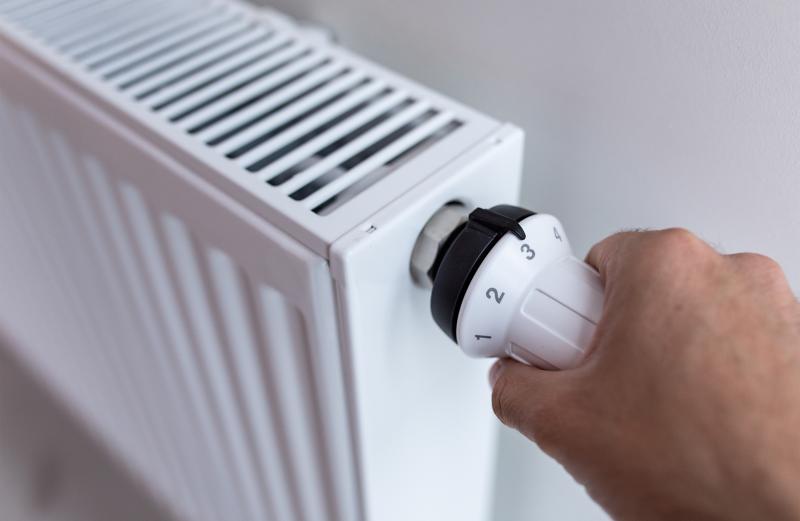Tips for saving on heating costs
Two-thirds of all household energy requirements are down to heating. Efficient heating will save on energy – and money, too.
Tip 1: set the right temperature
Not every room will need to be the same temperature. Keeping your bedroom at 18 or 19 degrees is ideal, but you can have your living room or bathroom a good couple of degrees warmer. Gauge the right temperature for different rooms and ensure your thermostats are set accordingly.
The right temperature saves money and protects your health
If rooms are too warm, this dries the air out, which negatively impacts your breathing, skin and the conjunctiva of your eyes. This increases the risk that you will catch a cold – and also your heating bill. Lowering the temperature by just one degree saves 6% in heating costs.
Tip 2: let heat circulate
Make sure radiators aren’t covered with furniture or curtains so warm air can circulate freely throughout your rooms. It’s also a good idea to close any roller blinds or shutters at night, as this will prevent rooms from cooling down too much. Do you like to keep your bedroom window open on winter nights? If so, ensure your radiators are set to their lowest possible setting (star or snowflake on the thermostat) and that your bedroom door is closed. By following these tips, you’ll prevent energy from being needlessly wasted.
Tip 3: if you’re not at home, turn down the temperature
Unused rooms don’t need to be heated to the same extent. Before going out, don’t turn your thermostat or wall controls off: instead, set them to the * setting (star or snowflake). This means that a certain amount of heating water will keep flowing through your pipes, which, in turn, prevents the pipes or radiators from freezing. If you’re away for a lengthy period of time, it’s worth setting the controls to 12 to 15 degrees (position 1 to 2).
Tip 4: ensure your heating is on the right setting in summer
In summer, you should switch your heating to hot water mode to prevent your system from triggering the heating on colder nights. If you have electric water heating, you can switch off your heating completely in summer. The caretaker will handle this if you live in an apartment. If you notice that your heating is on in summer, please tell us or your property manager immediately.
Tip 5: rugs create warmth
The majority of heat energy is lost through the floor, provided you don’t have underfloor heating. However, rugs with heat-insulating surfaces reduce the amount that is lost. Plus, studies have shown that people perceive the temperature in a room with carpeted floors as up to two degrees higher because their feet are warmer – so it’s definitely worth investing in beautiful rugs.
